![]()
Fri, Sept 24, 2010 | UN TV
President Suleiman Addressess the General Debate of the 65th Session of the General Assembly
Address by His Excellency General Michel Sleiman, President of the Lebanese Republic, at the General Debate of the 65th Session of the General Assembly of the United Nations (New York, 23-25 and 27-30 September 2010).
Lebanon, General Debate, 65th Session
STATEMENT
BY
H.E. GENERAL MICHEL SLEIMAN
PRESIDENT OF THE REPUBLIC OF LEBANON
AT THE
65TH SESSION OF THE
UNITED NATIONS GENERAL ASSEMBLY
NEW YORK
FRIDAY, SEPTEMBER 24, 2010
Permanent Mission of Lebanon to the United Nations
Transcript:
Mr. President,
First, I would like to congratulate you on your election as President of the 65th session of the General Assembly of the United Nations and to thank your predecessor for his good management of the work of the last session. I would also like to express my appreciation to His Excellency the Secretary-General of the United Nations, Mr. Ban Ki-moon, for his valuable report on the various aspects of the work of our international organization.
Mr. President,
This is the first time that I address this esteemed Assembly since Lebanon was elected as a non-permanent member of the Security Council for the term 2010-2011, which places on its shoulders responsibilities Lebanon is proud to assume in the service of its just causes, the just Arab causes, and the cause of justice and peace in the world.
In this context, I would like to praise the efforts and commitments made as a result of the Summit-level meeting of the Security Council in order to increase the effectiveness of its role and enable it to implement its resolutions away from double standards.
Moreover, we welcome the statement issued following the High-level meeting on pursuing the implementation of the Millennium Development Goals, which contribute to eradicating poverty, promoting education, and improving health services. We also commend the progress achieved by the United Nations in strengthening the role of women, an issue to which Lebanon grants special attention in line with its invigorating role, for it was among the pioneer countries in our region which granted women the right to vote in legislative elections in 1954.
Mr. President,
Despite the growing and important role the United Nations plays in socio-economic development, it remains in essence a political organization by far, that was primarily created to maintain international peace and security and to protect humanity from the scourge of wars and conflicts that befell it and stalled its progress and development for successive periods of its history.
In this context, the United Nations did not hesitate to address the Arab-Israeli conflict since its outbreak, and it has issued a series of resolutions aimed at restituting rights to their owners and consolidating the pillars of peace and development.
However, these efforts abated and faded in the face of Israeli intransigence and obvious inclination for expanding and adopting a settlement policy. Indeed, until today, Israel refuses to join the Nuclear Non-Proliferation Treaty and to place all of its nuclear facilities under the IAEA full-scope safeguards.
That is why, while we welcome today the international growing awareness for the urgent need to find a settlement for the Middle East problem, the Palestinian issue being at its heart, within set timeframes, and to revive efforts aimed at reaching such a settlement, experience from previous decades shows that it is impossible to reach an actual and permanent solution for the Middle East unless it is a just and comprehensive solution addressing all aspects of the conflict on all tracks, and unless the international community gathers the necessary determination to move from declaring guiding principles to working to ensure the appropriate pressure means for implementation while favoring elements of a solution based on the resolutions of the international legitimacy, Madrid’s Terms of Reference, and the Arab Peace Initiative in all its provisions, especially those which assure the rejection of the Palestinian refugees’ settlement in Arab host countries, should their circumstances contradict with such a settlement.
In fact, Lebanon has frequently declared that it will not accept any form of settlement of the Palestinian refugees on its territories. That is due to the reasons and considerations I emphasized at the Security Council yesterday, especially since such a settlement would provoke repercussions and dangers affecting security and the pillars of stability. It is important to note that the Palestinian refugees issue cannot be solved through Israeli-Palestinian negotiations alone, in a way which disregards Lebanon and other concerned host countries.
At this point, we cannot but reiterate that upon the shoulders of the international community falls the primary responsibility of ensuring the living requirements and well-being of the Palestinian refugees; and that by increasing its contributions to the budget of the UNRWA, which was created specifically for this purpose in 1949, that would guarantee a decent life for the Palestinian refugees under the sovereignty of the host countries and with their assistance, away from extremism and violence.
On the other hand, Lebanon condemns once again international terrorism, from which it suffered at various levels. It also cooperates with the international community to combat it and supports positions calling for exploring means to clearly define it and address its root causes so that it would be clearly distinguished forces. It is a cooperation that is not met in return, but by arrogant and provocative Israeli positions which are at the heart of the causes behind the incidents that occur every once in a while on the Blue Line and which, with efforts, can be prevented.
Mr. President,
During the past years, Lebanon strived to maintain its internal stability through dialogue, by completing the implementation of the Taef Accord, by resorting to legal institutions to resolve any dispute, and by its commitment to the resolutions of the Security Council and the international legitimacy. The Lebanese State was keen on meeting all constitutional deadlines without any delays, be they municipal or legislative elections which took place in a free, transparent and calm atmosphere, in accordance with the requirements of democracy and the principle of the devolution of power.
In addition, Lebanon deployed efforts to prevent any external aggression by seeking to compel Israel to implement United Nations Security Council resolution 1701, and by mobilizing all its national deterrent capabilities within the framework of a national defense strategy.
As we vow to persevere with this determination and this approach, no matter the dangers, with the support of the free and conscious will of the Lebanese people and the support of friendly and sisterly States, we remain confident that Lebanon will always be open to dialogue and human civilizational rich and innovative interaction, loyal to its mission, keen on strengthening the state of justice and law despite all challenges, and on upholding the values of freedom, democracy, and concord, values it was built on since its inception.
Thank you.



 RSS
RSS

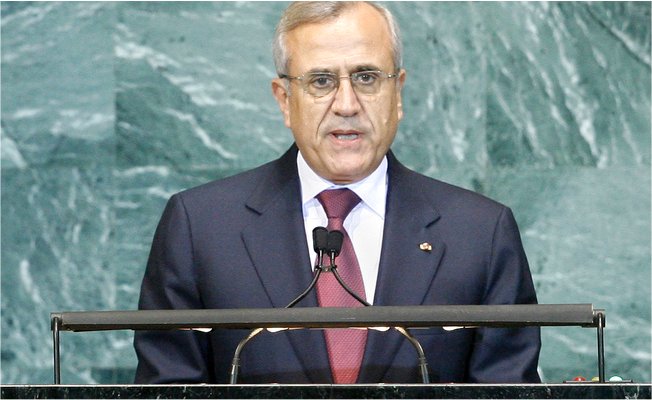

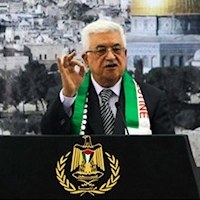
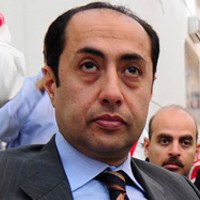
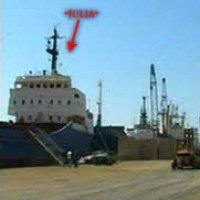
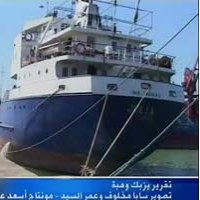












President Suleiman Addresses the General Debate of the 65th Session of the General Assembly | #lebanon #israel #un http://j.mp/djA1FZ